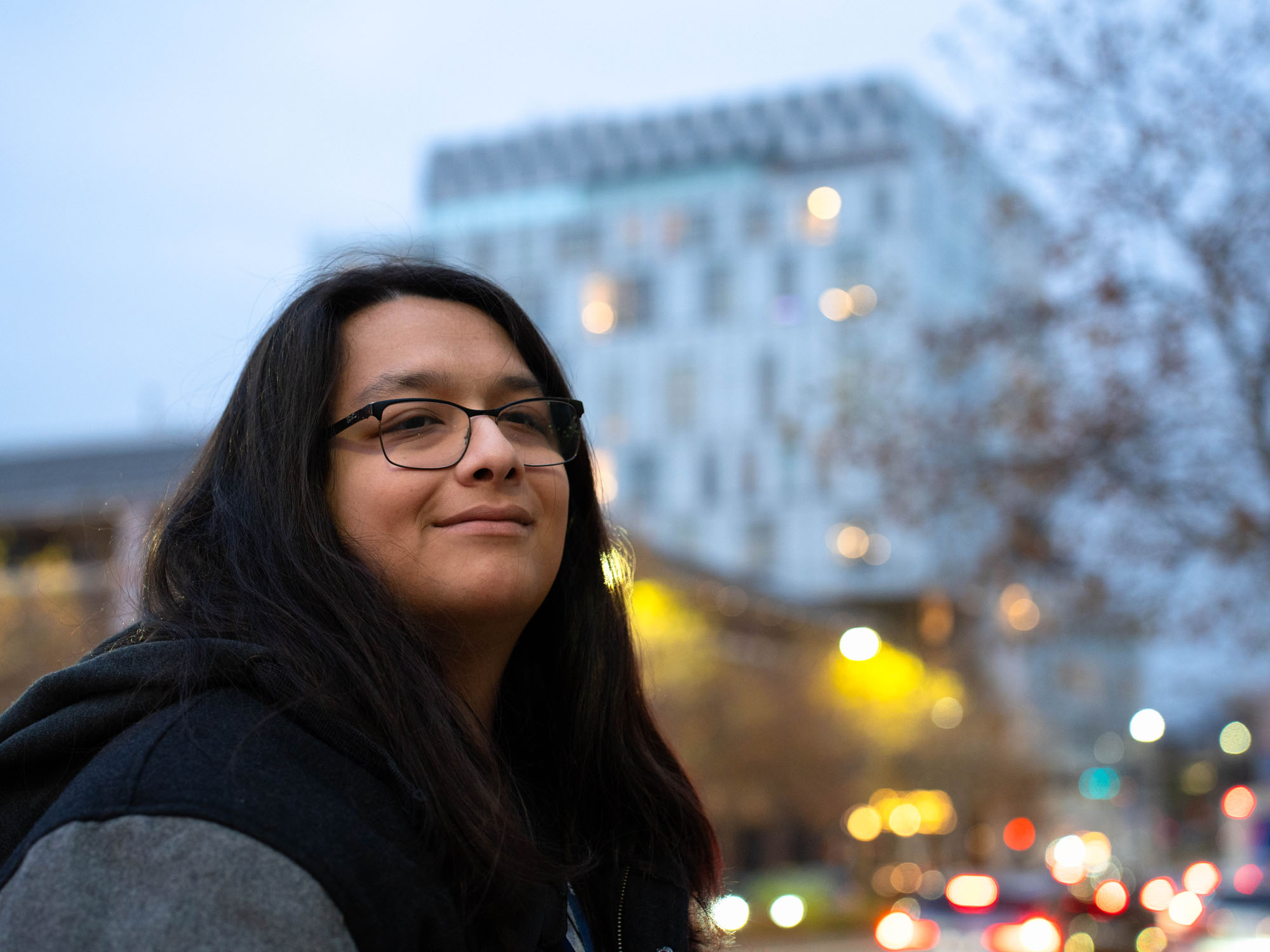
Felipe Rios grew up with video games in his life. His father, who taught computer repair, would pass down his old gaming consoles and with it, pieces of his passion to his son.
It would be years before Felipe, now a B.S. in Simulation and Game Design student, would fully adopt the hobby himself. And when he did, he was all in.
“I find that when I'm passionate about something, or I'm inspired by something, I can't stop thinking about it,” he said. “If I'm not playing, I'm still thinking about it. And to me, that really speaks to how much of this is a part of my life.”
That passion developed at the right time—high school. As he started thinking about college, Felipe was imaging a career in game design.
A west coast resident, Felipe started looking at a variety of colleges across the country. Felipe found UBalt because of its Simulation and Game Design program. He chose UBalt because he found that the passion in the people he spoke to matched his own.
The Simulation and Game Design program offers two tracks: technical art and coding and development. Felipe chose the former. He wanted to learn more about level design, texture, scripting, and more of the visual components of games.
“I’ve loved the aesthetic of games the most,” he said. “Whether it's the high fidelity, hyper realistic stuff, or it's the more stylized, personalized art style and direction of indie developers, that's been my pushing force.”
Building for Impact
While Felipe grew up familiar with a gaming lifestyle, his interest stems from two games. One is The Binding of Isaac, a role-playing game that stayed with him long after he shut down for the day. Another game that’s stood out to Felipe is Team Fortress 2. He likes that the game is free and accessible to anyone with a computer.
That idea of access stuck with Felipe. In one of his classes, Community Game Design, he and his group wanted to make a game that anyone could play from anywhere, whether they had a computer at home or played on one at the library.
Through the class, students partner with a local group, in this case Baltimore-based B-360, and must learn about their mission before building a game that could help that group advance their mission.
B-360 leans into dirt bike culture to give city youth a pathway toward STEM learning and positive community connections. Felipe’s team designed a side-scrolling riding game that enables players to learn about the parts of a bike as they build it and then test drive it.
The exercise was a valuable learning opportunity for Felipe to see not only how much work goes into a game but also to understand the effort of building a game with a deeper value.
“We can fulfill all of their goals and their wants, what they're looking for in the game, but there's also the worry of, are we making something that's going to be good enough for them to continue using?” he said. “It's not necessarily having that longevity of having a name that's out there and being like, yeah, I did that. It's about whether it’s good enough that it's going to continue to have a meaningful impact and fulfill that purpose.”
Felipe said he finds the most value in the program’s elevated learning structure. He came to UBalt with some understanding of video games, but quickly realized he had a lot more to learn. With each class, he said, he’s learning something new—how textures are made, how 3-D modeling works, and more. He’s loved every minute of that.
“I just want to learn more. I want to know more. I want to get better at what I already do,” he said. … “Every class that I take, as I get closer to the end of my degree, I continue to be affirmed that this was the right choice because I'm learning from people who are passionate to the same degree that I am. They're not here because it's an easy job or because it's a quick way to make a buck and get famous. They're here because they care. They're passionate. They've been in the same position that I have, at one point or another, and as much as they are my professors, they feel just like they’re peers as well.”
Making his mark
Felipe is even considering an eventual career in teaching game design. He is already developing some skills as a teacher in his time outside of the classroom as a tutor in UBalt’s Writing Center.
“Much like coming here to pursue the degree, working in The Writing Center has also taught me there's still so much to learn, so much to know, and being able to work with students has been really rewarding.”
Through the Writing Center, Felipe meets with other UBalt students and reviews papers they’re writing for their classes to help them identify and resolve gaps.
“I really feel the impact of them having that ‘Aha moment’ and feel like I'm actively making a difference. I'm actively helping change something for this person that'll continue to help them.”
Going the teaching route enables Felipe to follow in his father’s footsteps and continue to help people reach their potential. But thinking of the games that helped him get to this point, he also fully plans on sticking with game design, too.
“Hopefully one day somebody will have that moment where they're playing it and they're thinking about it, and they're like, I want to make my own thing, too,” he said.

